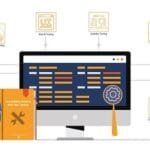Are you struggling to use Firefox browser online while implementing advanced debugging techniques? Debugging is a very important part of the modern web development process as it helps ensure that the apps function in the same smooth format across different browsers and environments.
Mozilla Firefox is well-known in the present industry due to its strong compliance with various web standards and powerful developer tools. This browser also has a robust suite of debugging tools that can be easily accessed online.
So, with this article, we will dive into advanced debugging techniques while using the Mozilla Firefox browser. During our discussion, we will cover everything, starting from basic usage to advanced features. The main goal of this process is to help the testers to streamline the debugging processes.
Advantages of Using Firefox Browser Online
Before we start elaborating on the advanced debugging techniques available with Firefox browser online, we must go through some of the major advantages of using Firefox browser online in a modern application development and testing scenario:
- While using Firefox browser online, the app developers and testers will have access to advanced tracking protection. This helps block many trackers and scripts which can collect browsing data.
- Mozilla Firefox is one of the most popular browsers when it comes to leasing frequent updates. These updates help the testers to address various security vulnerabilities and protect users from threats. Moreover, by implementing this approach, the testers can keep the data and personal information safe from all the emerging dangers.
- Mozilla Firefox browser online comes with a huge library of extensions and plugins which massively helps enhance the functionality of the overall browser usage. Some of the major inclusions in this list include options for ad blocking, security, and productivity.
- While using Firefox browser online, the application developers will have access to multiple options to customize the interface. These options can range from toolbar arrangements and go all the way to theme selections. By using this flexibility, the testers can create a browser environment which suits their preferences and workflow requirements.
- Since Firefox is an open-source project in its core, the entire code for the main architecture is publicly available. This availability allows the developers to review, modify, and improve it as per their project requirements.
Inspecting Elements And The DOM
Using Mozilla Firefox online, the application developers can easily inspect the elements present on the web applications.
Inspecting The DOM
The inspector panel allows the testers to examine and modify the HTML and CSS code of a web page. This is a very important parameter for understanding the structure of the document. It also allows the testers to make real-time changes for viewing how they affect the properties of the page.
Using the HTML view, the developers can visualize the DOM tree of the current web page.
On the other hand, the CSS view displays the CSS rules that the testers have currently applied for the selected element of the web application.
Finally, using the box model, the testers can visualize the box model of the selected element. Some of the most important inclusions in these elements include padding, border, and margin.
Editing HTML And CSS
Using the developer tools of Firefox online, the testers can edit the HTML and CSS code directly within the inspector panel. The major benefit of this process is that any changes that have been made will take effect immediately to allow rapid prototyping and troubleshooting. The testers can right-click on an element in the HTML view to add edit or remove attributes as per their requirements.
The testers can also follow the above steps to make changes on all the elements present on the web application as well. It is important for the testers to remember that while they are present on the CSS view, they can add new rules or edit the existing ones.
Advanced JavaScript Debugging
Now, let us go through some other major advantages of using Firefox online for implementing JavaScript debugging and troubleshooting:
- The testers can use the debugger panel in Firefox DevTools, which is a powerful tool for debugging JavaScript. Using this panel, the testers can set breakpoints for pausing the execution at specific lines of code.
- The testers can also right-click on a line number in the source code and choose a conditional breakpoint so that they can pause the execution process only when a certain condition is met.
- We advise the developers to use logpoints instead of pausing execution. This will help them to print messages to the console when the code reaches a certain line. This inclusion is useful for logging values without modifying the source code.
- Source maps allow the testers to debug minified and transpired testing code. It achieves this goal by mapping the code back to the original source code. While using source maps, the testers have to ensure that their build process includes source maps. It is also important to ensure that Firefox can automatically use them to provide a better debugging experience.
WebAssembly Debugging
While using Firefox DevTools, the application developers will also have unique options for debugging the WebAssembly (Wasm) code present in modern apps. To perform this process, the testers can set breakpoints and step through Wasm code. It is also important to inspect variables just like you would with JavaScript code.
The above inclusion becomes particularly useful when the developers are working with applications which use WebAssembly for performing performance critical tasks.
Remote Debugging With Firefox Browser Online
Now let us go through some of the most important inclusions that the developers must keep track of while implementing remote debugging with Firefox browser online:
- Firefox developer tools support remote debugging, which allows the testers to debug web apps running on other devices. This means the testers can use these tools even on mobile phones and remote servers. To enable this process, the testers have to follow the steps that you have mentioned below:
- The first step is to enable the remote debugging options by navigating to the “about:config” option in Firefox. Here, the test is set to search for ‘devtools.debugger.remote-enabled.’ Finally you have to set the value of this component as true.
- Next, the application testers have to connect to the devices on which they are planning to execute the test instances. For this process, you have to open the WebIDE option for the Firefox menu and connect to the remote devices that you have already configured in this menu.
The remote debugging feature is very important for testing and debugging web apps across different environments and devices. Using this feature, the application testers can also remove geographical barriers and limitations to allow smooth collaboration among diverse teams. As long as you have a smooth network connection, remote debugging is a boon to your needs.
Extensions and Customizations
While using Firefox DevTools, the application developers and testers will have access to multiple extensions and customizations to further improve the efficiency and quality of the debugging process. To shed more light over this segment, we have mentioned some of the most important extensions that the developers can use with Firefox:
- The React developer tools provide specialized options for debugging React applications. This is a very important parameter as React is one of the most popular options when it comes to creating basic apps.
- Redux DevTools offer various dedicated tools that allow the developers to debug applications which are using Redux for state management within the application infrastructure.
- Finally, the testers can use Vue.js DevTools, which will help them enhance the DevTools with multiple unique features. However, the testers must remember that these features are specific to Vue.js applications.
Best Practices for Efficient Debugging
Now that we have finished understanding some of the most advanced debugging techniques that you can implement on Firefox browser online, let us go through some of the best practices that will help you to further streamline this process and improve its efficiency:
- It is very important for the testers to optimize the debugging workflow. To implement this process, the testers can reproduce the issue before beginning the debugging process. It is also important to use the right DevTools option based on the bugs that you are working on.
- We would strongly advise the testers to pay proper attention towards debugging the performance issues that might arise while working with modern web apps. During this process, the testers have to profile the application’s performance and keep track of various bottlenecks. Optimize the critical paths and monitor the network requests to ensure that the application is stable in all real-world scenarios.
- To further improve the efficiency of Firefox browser online, the testers can include cloud platforms like LambdaTest. LambdaTest provides access to more than 3000 different combinations of operating systems, real devices, and browser versions including Firefox. The AI-orchestrated infrastructure of LambdaTest further boosts test management and cross device testing execution.
- We strongly advised the testers to run accessibility audits while executing the test cases on Firefox browser. This implementation will help them ensure that the app is accessible to users with disabilities. To properly utilize this process, the testers can use semantic HTML and also integrate assistive technologies with the application.
- While using Firefox browser online, we advise the testers to automate the test instances so that they can reduce the execution time related to repetitive yet crucial test instances. Automation testing also helps improve the quality of the application by removing human intervention.
- Finally, it is crucial for the testers to stay updated with all the recent Firefox releases. This is because these releases will also add new techniques and integrations to Firefox DevTools. The tester should also participate in developer forums and communities to share knowledges and learn about new debugging techniques.
The Final Verdict
Based on all the factors that we analyzed in this article, we can easily conclude the Firefox developer tools will provide a comprehensive and powerful suite to help debug modern web apps. By mastering these tools and techniques, the testers can massively improve the debugging capabilities and also the quality of the app that is currently being developed.
Firefox DevTools has dedicated features to help you at any instance of the application debugging process and to tackle any challenges that might come your way. It is also important to stay curious and keep evolving the advanced capabilities of Firefox DevTools. This approach will help the testers to make the overall testing cycle more effective and efficient.
Finally, we would like to conclude on the fact that debugging is a very important skill and with the right tools and techniques, testers can transform it from a daunting task to a rewarding and insightful process.
Also read about: Continuous Integration with Jenkins for Selenium Automation







